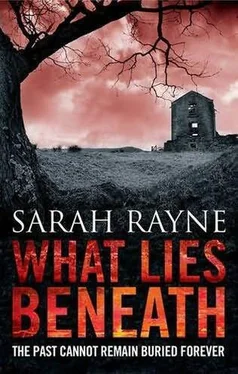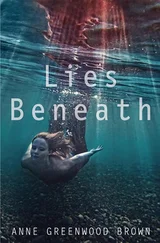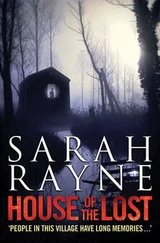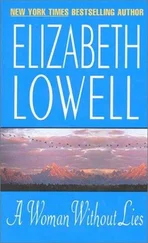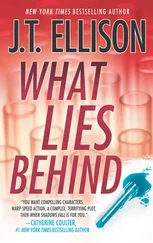I remember very clearly that it was mid-September when we finally stepped ashore at Alexandroupolis. I also remember standing there for a moment and absorbing the scents of that hot quay – the unmistakable sea tang, but also the scents of that particular country. Each country has its own scent, of course. I do know it’s mainly to do with the climate and the food that’s eaten and grown, but I like to think there’s something else as well: that the essence and the history of a country permeates its air.
But standing there that day, with the hot eastern sun on my skin, I experienced a longing for England that was so sharp and strong it was nearly painful. You may think this impossible and even mad – mad! there’s a word! – but I ached for the feel of thin silken rain against my face and the crunch of dead leaves under my feet.
The hospital at Alexandroupolis, when finally we reached it, was less than useless – hopelessly inefficient and old-fashioned – and the doctors and nurses found it difficult to hide their hostility. No one actually said so, and the language barrier was a difficult one, but there was the definite impression that they regarded us as lordly English travellers who expected everyone to bow and scrape and tug mythical forelocks. (Crispian again, you see?) Still, somewhere in that suspicious old building must have been someone with a speck or two of humanity – or perhaps it was just that someone could speak a word of two of English and understood what we wanted. Because eventually we found ourselves with the address of some kind of semi-military, partly British hospital in a place called Edirne, and we got out to a railway station where Crispian did his I-am-rich performance again, and we obtained a railcar to ourselves.
But on that occasion Crispian was probably cheated. The railcar was small and hot; it smelled of urine and sweat, and of years of dirt. There were seats of a kind – slatted wooden benches, which were appallingly uncomfortable. It was a very long time before the train finally started on its journey, but when it did it was truly dreadful. It shook and jolted so violently that it was a minor miracle the carriages stayed linked. By the time we got to Edirne all of us had been travel sick. Can you imagine being sick – I mean actually vomiting – in a closed carriage with no washing facilities of any kind? And certainly no privacy. Looking back, I have no idea how long that journey lasted, but it felt like hours. All I remember now is the wet sour smell of the vomit on the floor – of trying not to stand in it – and of my own heaving stomach and the skewering pain in my head over one eye.
But at last we crossed the border into Turkish territory.
None of us knew that the worst part of the nightmare was still to come.
Edirne, 1912
Crispian had found himself frequently dreaming of England on their travels, but never more so than during the squalid rail journey to Edirne. As the train rattled its way through the strange countryside he looked at the others, one by one. They had all been sick during the journey and they all looked ill. Gil was white-faced and uncharacteristically silent; Jamie was exhausted and withdrawn, and Julius was restless and clearly distressed, despite the triple dose of bromide Gil had given him before they set off.
But the journey had to be made; the Alexandroupolis hospital had said Edirne had a military infirmary – only very small but certainly it could provide the care that the poor English milord needed. And Crispian thought a military base, no matter how small, might afford some protection if the seething cauldron they were stepping into finally erupted into war.
Edirne, when they reached it, weary and grubby, was better than he had dared hope.
‘It’s a bit of a hybrid place,’ Jamie said, as the train seemed to near the end of its run. ‘I read something about it on the ship. It’s been a centre of learning in its time. The Ottomans got their hands on it about five hundred years ago, and they’ve populated it with quite a lot of immigrants: Hungarians and also a thriving Jewish community. There’s even a rabbinical seminary.’
‘We can spend our evenings there when we want to relax, and get drunk with the rabbis,’ observed Gil, drily.
The hospital turned out to be in a kind of enclosure, part of an ancient Ottoman fort.
‘We’re all walking on hot bricks, of course,’ said Raif, the young doctor who had greeted them, who had examined Julius, and whose English was better than Crispian had dared hope. ‘And we think we might be in for some dangerous times. But you’re welcome to stay, and if you have to be in this country at the moment, this fort is probably about the safest place. It’s withstood many a battle over the centuries. There are several of your countrymen – also women – here. There’ll probably be room for the three of you in the same wing.’
‘You can look after my father?’
‘We can probably make him comfortable and see he doesn’t harm anyone or himself,’ said Raif. ‘I don’t think you can hope for more than that.’
‘I don’t.’
‘Don’t be too downcast. There have been some surprising remissions, even at this stage. He might astonish you yet.’
‘Is the war situation as grave as the newspapers say?’
‘Far worse,’ said Raif.
All thoughts any of them had of returning to England were swept overwhelmingly away when all the endeavours of countries like France and Austro-Hungary failed to dissuade the Balkan League from finally taking arms against the Ottoman Empire. Both the League and the Turks mobilized their armies. Early in October Montenegro declared war, and shortly afterwards, the other states in the League followed suit.
At a time when the English countryside would be golden and amber, and scented with apples, Greek naval and army detachments seized almost all the islands of the eastern and north Aegean Sea, effectively controlling all exits.
Crispian knew that whether his father died or whether he lived on in this dreadful blind mindless state, they were all trapped in the ancient Turkish fort until the war was over.
Entries From an Undated Journal
Earlier today I reread some of the notes I made during those appalling weeks, and I was shocked to see how bad my writing was. I was never a particularly good penman at the best of times. The content is all good, of course, but the execution isn’t always immaculate.
But some of the pages from those weeks are very nearly indecipherable. I can also see there were several places where I had to break off abruptly because someone was coming. Some pages are quite badly creased as well, because I would thrust the journal into one of its hiding places. I always kept it well concealed, of course – I didn’t trust anyone on that ship or, later, inside the Edirne fort – but concealment became increasingly difficult and I had to change the hiding place more than once.
They never found the journal though, not then and not since, and that affords me such satisfaction, even now, even in this place, with three days left to me.
Three days.
Today I explored that cupboard again, with the tantalizing blank wall at the back – the wall that should lead somewhere but that, even by my most careful reckonings, can’t lead anywhere. But although I tapped and even hammered at it, and although I explored its surface minutely, I could find no way of breaking through to the other side.
Will three days be long enough to finish my story? Or will that nibbling darkness overtake my mind before the three days are up?
A long time after that journey to Edirne, I came across the poems of Thomas Hardy. A remarkable writer, Hardy. He understood about the darkness, all right. One poem called ‘The Interloper’ has an epigraph – a kind of subtitle – which struck such a chord in my mind I think it’s gone on resonating ever since.
Читать дальше
